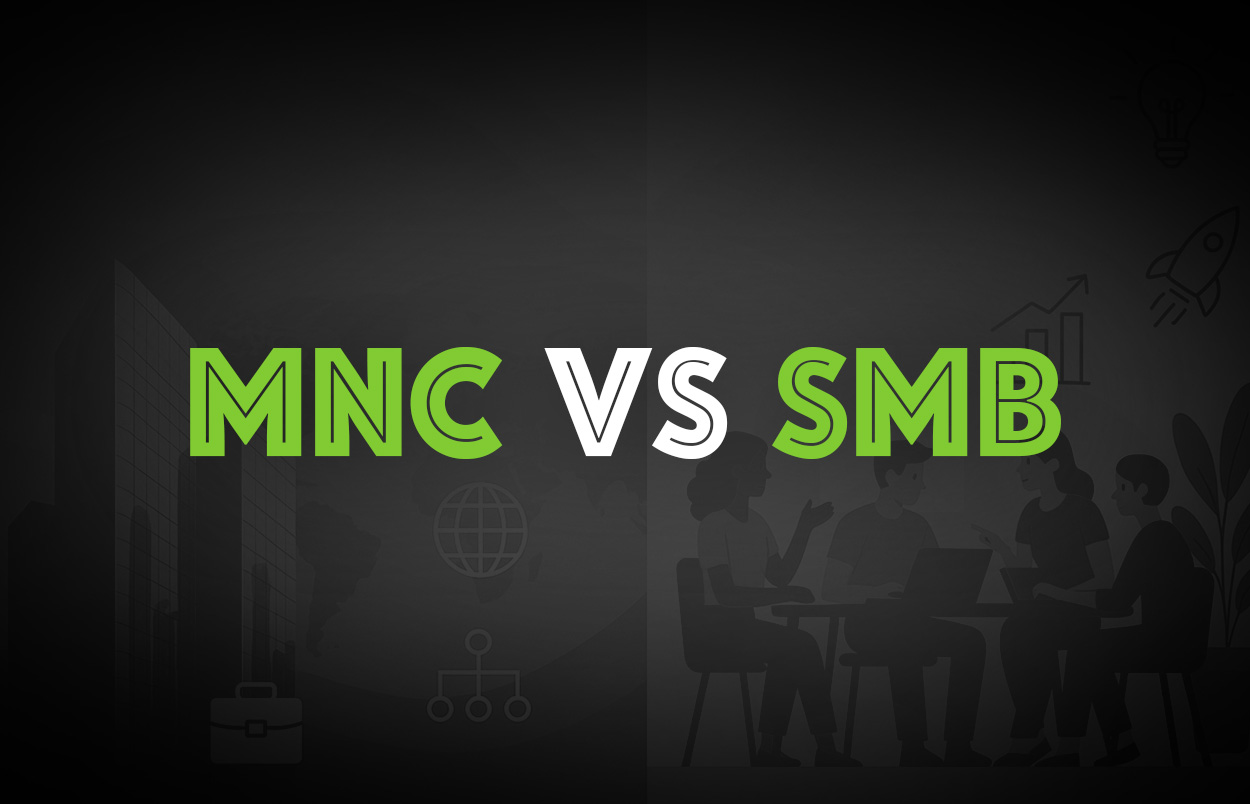After spending 7.5 years at Accenture, a global MNC known for its structured systems, defined processes, and global exposure, I recently made a shift that many professionals hesitate to take — moving from an international corporate giant to an Indian SMB (Small & Medium Business) , Jai Veeru Creatives.
And let me tell you this — the difference is nothing short of chalk and cheese.
At Accenture, life was about processes, hierarchies, and predictability. There was a SOP (Standard Operating Procedure) for everything — from onboarding a client to handling a project escalation. Teams were massive, responsibilities were clearly defined, and there was always another department to fall back on. The pace was steady, almost like a Shatabdi Express — fast, but on fixed tracks.
Now, at Jai Veeru Creatives, it feels more like a Mumbai local train during peak hours — fast, dynamic, and sometimes chaotic, but you learn to jugaad (a quick, resourceful hack or workaround to solve a problem creatively) your way through and still reach your destination on time.
Work Culture:
In an MNC, your job role is clearly defined — you know your lane, and you stay in it. Every task has an SOP, and there’s a set process for almost everything. It gives you consistency and predictability, but sometimes it also boxes you in.
In an SMB, you wear multiple hats. One day I’m allocating tasks to my team, the next I’m directly on a client call helping them strategize their digital campaigns, and sometimes I’m even troubleshooting workflows. Here, it’s less about “what’s written in your JD” and more about “jo kaam aaj karna hai, wahi priority hai.”
And while there’s no thick SOP manual to fall back on, the freedom to try, test, and implement your own way of doing things is liberating. At Jai Veeru, I don’t just follow processes — I get to shape them.
In an MNC, if you wanted something approved, you raised a ticket, waited for alignment, and scheduled stakeholder calls. At Jai Veeru, it’s as simple as walking over to your teammate’s desk and saying, “Bhai, yeh kal tak ho jayega na?” (“Brother, this will be done by tomorrow, right?”) Decisions are faster, ownership is higher, and the turnaround feels almost entrepreneurial.
People:
Corporate life often feels like living in a massive housing society — you know a lot of people, but only superficially. You exchange pleasantries in the lift, but rarely know their story. In an SMB, it’s more like a joint family — everyone knows everyone’s strengths, weaknesses, deadlines, moods, and even their chai preferences.
At Accenture, performance reviews were annual events, filled with slide decks, rating discussions, and forms to justify your growth. At Jai Veeru, feedback can be as instant as someone saying after a meeting, “Yaar, woh idea mast tha!” (“Friend, that idea was awesome!”) That immediacy makes you sharper, faster, and much more connected to your work.
Work Itself:
From managing multi-million-dollar ad accounts in a highly structured environment, I now handle multiple accounts across different sectors. The scale may differ, but the ownership is 10x higher. Every small win feels personal.
In an MNC, you’re often a small cog in a massive machine. The machine runs whether you’re there or not. In an SMB, you’re not just part of the machine — sometimes, you’re the oil, the engine, and the driver, all at once. If you pause, the work pauses. That level of responsibility can feel heavy, but it’s also empowering.
This shift has taught me that structure brings stability, but agility brings growth. While MNCs give you processes and polish, SMBs give you speed and ownership. Both are valuable, but in very different ways. One teaches you how to operate in scale, the other teaches you how to build from scratch.
If you’re someone considering this shift, my advice would be to be ready to unlearn some of the “big company” habits, embrace jugaad and flexibility and most importantly, enjoy the thrill of creating visible impact every single day.
At the end of the day, whether you’re in a glass building in Cyber City or a buzzing agency office, the goal is the same — to grow, learn, and add value.
Sometimes, the biggest career growth comes not from moving up, but by moving across.




